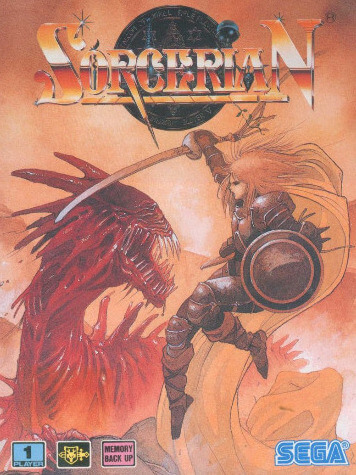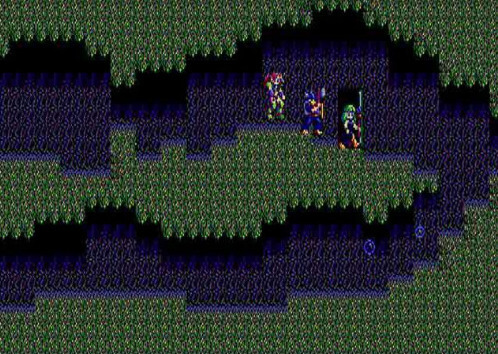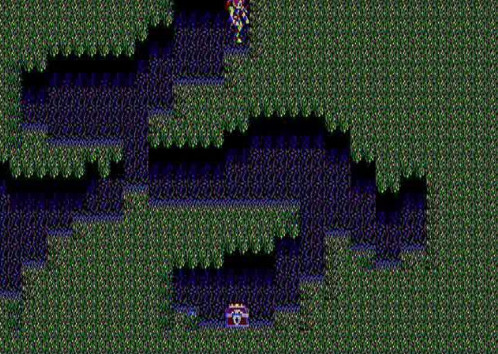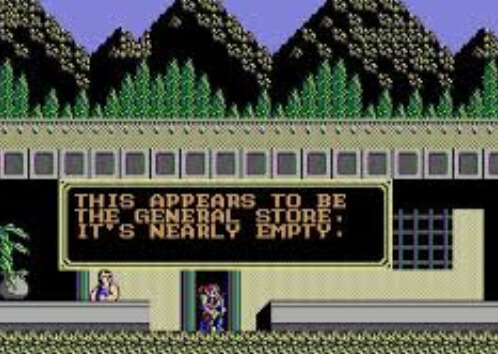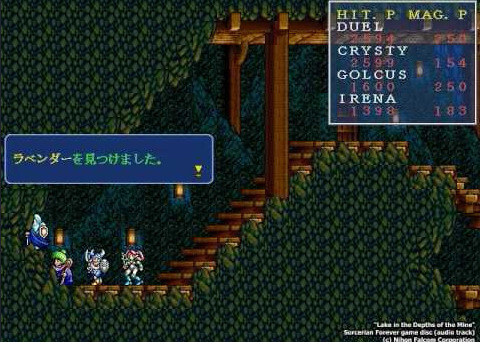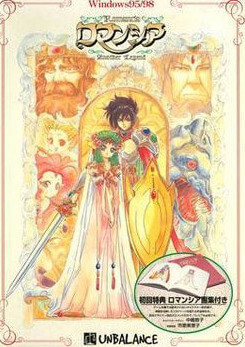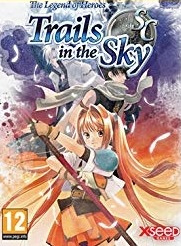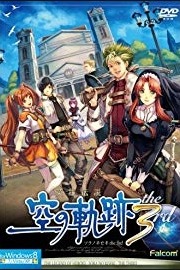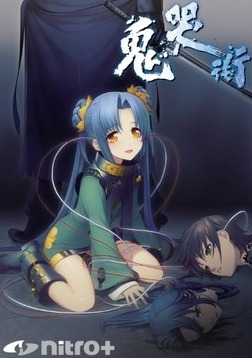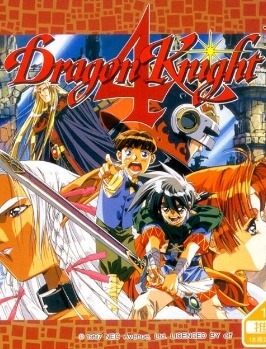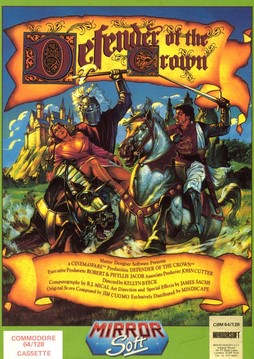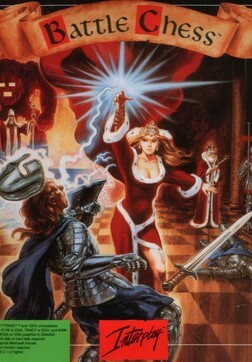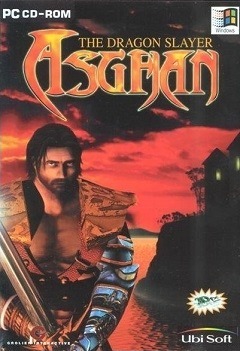The player can choose from fifteen different scenarios, or quests, to play through in the order of their choice. The party must battle enemies and perform tasks within the given levels to clear each scenario, before moving onto another scenario of their choice. The player controls the entire party at the same time, with all four members running in a line, jumping in sequence, and attacking in unison. The party members follow behind in a manner similar to the Options in the arcade shooter Gradius (1985). Sorcerian also employs class-based puzzles, such as using a high-strength character to force open doors.
All the characters have a default starting age of 16. Each time a player begins a new scenario, a year passes by, while additional time passes by in towns as a character goes through training or enchants items. The characters age at different rates depending on their race, with humans reaching old age at 60, dwarves at 100, and elves at 200. Upon reaching old age, for every year that passes, a character can die permanently at a random time. There is also an “Advance Time” to speed up the flow of time. Another new feature of Sorcerian was its episodic format that extended across various expansion packs. Besides the default fifteen scenarios that come with the game, there were a number of additional scenario packs released. The aging system was created with the additional scenario packs in mind.
Add-ons
A number of add-on expansion packs containing new scenarios were developed for the PC-8801 version of Sorcerian, by both Falcom themselves and by other companies:
Developed by Falcom: Sorcerian Utility Vol. 1, Sorcerian Additional Scenario Vol. 1, Sorcerian Additional Scenario Vol. 2 – Sengoku Sorcerian, Sorcerian Additional Scenario Vol. 3 – Pyramid Sorcerian
Developed by Amorphous: Sorcerian New Scenario Vol. 1 – The Visitor from Outer Space, Selected Sorcerian 1, Selected Sorcerian 2, Selected Sorcerian 3, Selected Sorcerian 4, Selected Sorcerian 5
Developed by Quasar Soft: Gilgamesh Sorcerian
Music
The soundtrack to the original Sorcerian was composed by Yuzo Koshiro, Mieko Ishikawa, Reiko Takebayashi, Hideya Nagata, and Takahito Abe. The Falcom-developed Additional Scenarios were handled solely by Ishikawa. The music for the original Sorcerian was arranged by Kenji Kawai for the PC Engine CD release. Rob Atesalp and Ken Allen composed a MT-32 MIDI-compatible arrangement of the soundtrack for Sierra Entertainment's English version of the game.
Soundtrack releases for Sorcerian include:
Music from Sorcerian: The original score to the PC-88 version of the game.
All Sounds of Sorcerian: The original sound again, this time in the form of medleys for each scenario, along with two arranged tracks.
Sorcerian Super Arrange Version: A series of three albums featuring arrangements by Hiroyuki Namba. Volume 1 contains a set of arrangements from the base scenario of Sorcerian. Volume 2 contains arrangements from the base scenario and Additional Scenario Vol. 1, along with the original sound of Additional Scenario Vol. 1. Volume 3 contains arrangements and the original sound from Additional Scenario Vol. 2 and Vol. 3.
Perfect Collection Sorcerian: A set of 3 2-disc albums containing various arrangements of the base Sorcerian soundtrack, similar to the Perfect Collection Ys album series.
Sorcerian Forever I & II: Two albums containing upgraded versions of the Sorcerian base scenario soundtrack, similar to the Music from Ys Renewal releases.
Reception
In 1990, Famicom Tsūshin (now Famitsu) reviewed Sega Mega Drive (Genesis) version of the game, giving it a generally positive score of 27 out of 40.
Computer Gaming World reviewed the PC DOS version in its October 1991 issue. They noted it has "an interesting feature or two" and liked the game's division into many miniquests, stating that instead "of the usual long adventure, this one sports fifteen separate small quests" which "allows for a certain amount of variety". However, they disliked the magic system, and stated "the action is arcade in style, which is typical for a Japanese game, and some will find this irksome" but noted "this is not just hack-and-slash, as there are puzzles to be solved along the way". The magazine concluded that Sorcerian was a "good for a change of pace" for those comfortable with "arcade" action.
In 2008, game designer Hideki Kamiya listed Sorcerian among his favorite games of all time, citing it as one of the games that influenced his work. During production of PlatinumGames title Scalebound, Kamiya said he was inspired by Sorcerian as well as Hydlide 3. He noted the influence of Sorcerian's fantasy theme, "gigantic monsters," different scenarios, "expansive possibilities", "tons of adventures" and enemies such as a hydra boss and "lots of amazing dragons".
